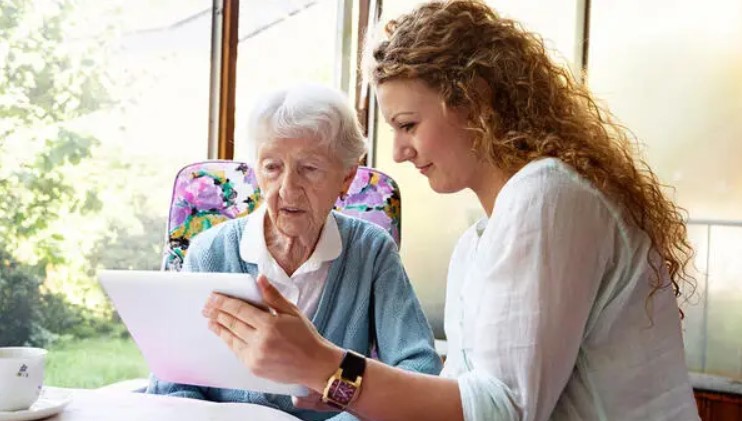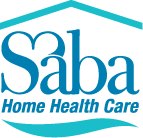
When caring for a loved one who is receiving medical care, it may be hard to understand the various abbreviations and acronyms used in healthcare settings.
As a caregiver, it is important to familiarize yourself with these terms as they will often be used in discussions with healthcare professionals or when reviewing medical records.
Here is a review of some common medical terminology for caregivers, focusing specifically on home health care abbreviations. These abbreviations may be used to describe services your loved one is receiving or to communicate important information about their care plan.
By understanding these terms, you can better advocate for your loved one and ensure they receive the best possible care.
What is Home Health Care?
Home health care refers to a wide range of medical services provided in the comfort and privacy of one’s own home. This type of care is often necessary for individuals who have been recently discharged from a hospital or skilled nursing facility but still require ongoing medical attention. It can also be beneficial for elderly or disabled individuals who may need assistance with daily tasks and activities.
Home health care services may include skilled nursing care, and home health aide services. These services are typically prescribed by a physician and can be tailored to meet the specific needs of an individual.
Home health care can provide numerous benefits for patients and their families. It allows individuals to receive necessary medical care while remaining in a familiar and comfortable environment. This can lead to improved recovery outcomes, increased independence, and a higher quality of life.
Home health care may seem challenging, especially when faced with unfamiliar medical jargon. It is important for caregivers to understand common abbreviations and terminology used in this field. Let’s take a closer look at some commonly used home health care abbreviations and their meanings.

Common Home Health Care Abbreviations
Common home health care abbreviations are essential for caregivers to understand as they communicate complex care instructions in a concise manner. Here are some of the most commonly used abbreviations in the home health care setting:
- CHHA: Stands for Certified Home Health Aide. A home health aide is a trained and certified healthcare worker who provides in-home assistance with personal care and household duties while monitoring the patient’s condition.
- HFA: Abbreviation for Hospice Foundation of America. This nonprofit organization is dedicated to enhancing the U.S. healthcare system and the role of hospice within it.
- HEP: Home Exercise Program. This refers to a set of physical exercises prescribed by healthcare professionals that a patient can do at home to maintain or improve health.
- HCQIP: Home Care Quality Improvement Program. This program focuses on enhancing the outcomes of home care, measuring improvement, and surveying patient satisfaction to ensure high-quality service provision.
- IADL: Instrumental Activities of Daily Living. These activities are more complex than basic self-care tasks and include managing finances, shopping, cooking, and using the telephone. IADLs are an important for determining a patient’s ability to live independently.
Understanding these abbreviations allows caregivers to provide efficient and effective care, ensuring that they can communicate accurately and promptly with other healthcare professionals and respond effectively to the patient’s needs.
Is Home Health Care Right for Your Loved One?
Home health care may be the right option for your loved one. Consult with Saba Home Health Care for patients in the Monmouth County and Ocean County, New Jersey area and consider their medical needs, living situation, and personal preferences.
Home health care can be a great choice for those who require ongoing medical attention but wish to remain in the comfort of their own home. It allows for personalized care, promotes independence, and provides a sense of familiarity and security.
With a better understanding of common home health care abbreviations and terminology, you can confidently navigate the world of in-home medical care for your loved one. Call Saba Home Health Care for any questions or concerns you may have. Together, we can provide the best possible care for our loved ones.
Terms that Go Hand-in-Hand with Home Health Care
In addition to abbreviations and acronyms, there are also common terms used in the home health care setting that caregivers should be familiar with. These include:
- Care Plan: A comprehensive plan created by healthcare professionals outlining the specific medical services and treatments a patient will receive.
- Discharge Planner: A healthcare professional responsible for coordinating a patient’s discharge from a hospital or skilled nursing facility to home health care.
- Palliative Care: A type of medical care focused on improving the quality of life for patients with serious illnesses. This can include pain management, emotional support, and spiritual support.
- Respite Care: Temporary relief services for caregivers that allow them to take breaks from their caregiving responsibilities and attend to their own needs.
- Skilled Nursing Facility (SNF): A facility that provides 24-hour nursing care and rehabilitation services for patients who require a higher level of medical attention.
By understanding these terms, caregivers can better communicate with healthcare professionals and advocate for their loved one’s needs. It is also important to continuously educate oneself on the changing landscape of home health care to ensure the best possible care for our loved ones. So, it is important to stay informed and keep learning about home health care services and terminology.
Is Home Health Care the Future of Healthcare?
With the aging population and increasing demand for personalized care, home health care is becoming an increasingly popular option. It allows individuals to receive necessary medical services in the comfort of their own homes while reducing the strain on hospitals and skilled nursing facilities.
Additionally, advancements in technology have made it possible for remote monitoring and telehealth services to be integrated into home health care, further improving accessibility and convenience for patients.
As we continue to see a shift towards patient-centered care, it is likely that New Jersey home health care will play a significant role in the future of the medical industry in our state. By understanding common abbreviations and terminology, caregivers can stay informed and be prepared for this evolving landscape of medical care.
Does Home Health Care Have a Positive Impact on Patients?
Research has shown that home health care can have numerous positive impacts on patients, including improved patient outcomes and quality of life. It also allows patients to continue living in their own homes, promoting independence and familiarity.
Home health care has been associated with reduced healthcare costs and readmission rates compared to hospital or skilled nursing facility stays. This is due to the personalized and proactive care provided in a home setting.
Also, the emotional and psychological benefits of receiving care in a familiar environment cannot be underestimated. Patients often feel more comfortable, relaxed, and secure in their own homes, leading to improved mental well-being.
Mistakes to Avoid in Home Health Care
While home health care can be a beneficial and convenient option, there are also some mistakes that caregivers should avoid. Saba Home Health Care is based in Toms River, New Jersey and can help patients and their families with guidance and best practices for the best home health care experience. Mistakes that should be avoided might include:
- Not communicating effectively with the healthcare team and not advocating for the needs of the patient.
- Not understanding and following the prescribed care plan or medication regimen.
- Neglecting to address safety concerns within the home environment.
- Not taking proper precautions to prevent infections and ensure hygiene.
- Not seeking respite care or support when family caregivers are feeling overwhelmed.
By being aware of these potential mistakes, caregivers can take steps to prevent them and provide the best possible care for their loved one. Remember, communication and collaboration with healthcare professionals are key in ensuring a positive home health care experience for both the patient and caregiver.
How much Does Home Health Care Cost?
The cost of home health care can vary depending on factors such as the patient’s medical needs, location, and duration of services. Generally, home health care is covered by Medicare or private insurance for those who meet certain eligibility requirements.
It is important to discuss potential costs with the healthcare team and insurance provider to fully understand what services are covered and any out-of-pocket expenses that may be incurred.
Additionally, some community organizations and government programs, including Veteran’s benefits, offer financial assistance for home health care services. It is worth researching and exploring these options to help offset the cost of in-home medical care.
NJ Home Health Care Provides Personalized Care in the Comfort of Home
Home health care offers a valuable and convenient option for individuals in need of medical services, allowing them to receive personalized care in the comfort of their own homes. By understanding common terminology and potential mistakes to avoid, caregivers can ensure the best possible care for their loved one.
Stay informed and educated about home health care to navigate this evolving landscape with confidence. With proper communication, collaboration, and support, home health care can be a beneficial and positive experience for both patients and caregivers.
Call 732-797-0700 or Contact Us for a New Jersey Home Health Care Consultation
Frequently Asked Questions
Are there any restrictions on the types of medical services that can be provided in home health care?
Yes, there are certain limitations on the types of medical services that can be provided in a home setting. These typically include complex procedures, surgeries, and treatments that require specialized equipment or personnel.
Can family members or friends provide home health care?
Yes, family members or friends can provide home health care, but it is important to ensure they have proper training and support. In some cases, hiring a professional caregiver may be the best option for specialized medical needs.
How can I find a reputable home health care agency?
It is recommended to research and compare different agencies in your area, read reviews and ratings, and ask for recommendations from healthcare professionals or other caregivers. It is also important to ensure the agency is licensed and accredited by relevant authorities. Saba Home Health Care is a trusted and reputable company serving patients throughout Monmouth and Ocean County, New Jersey.

